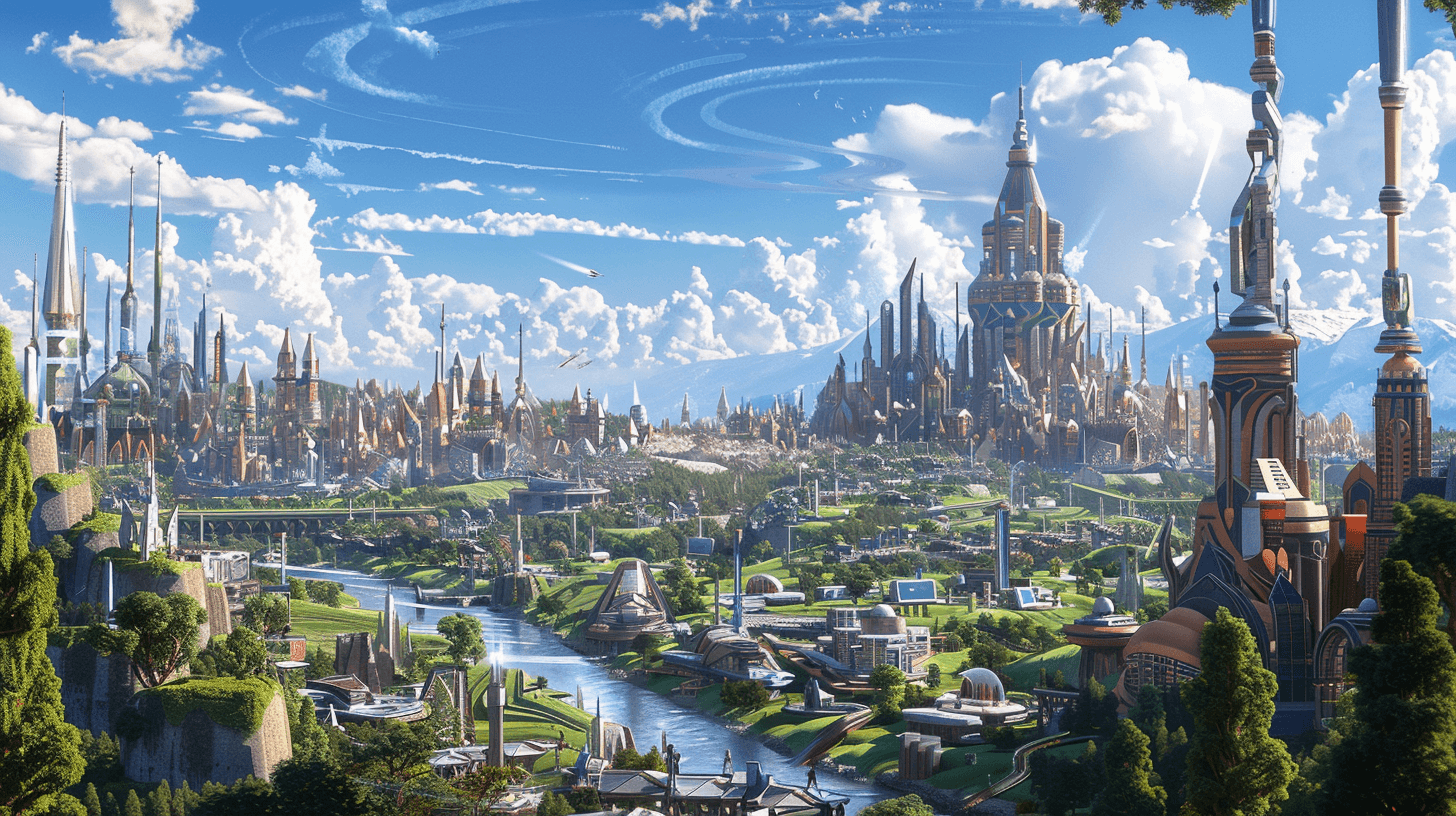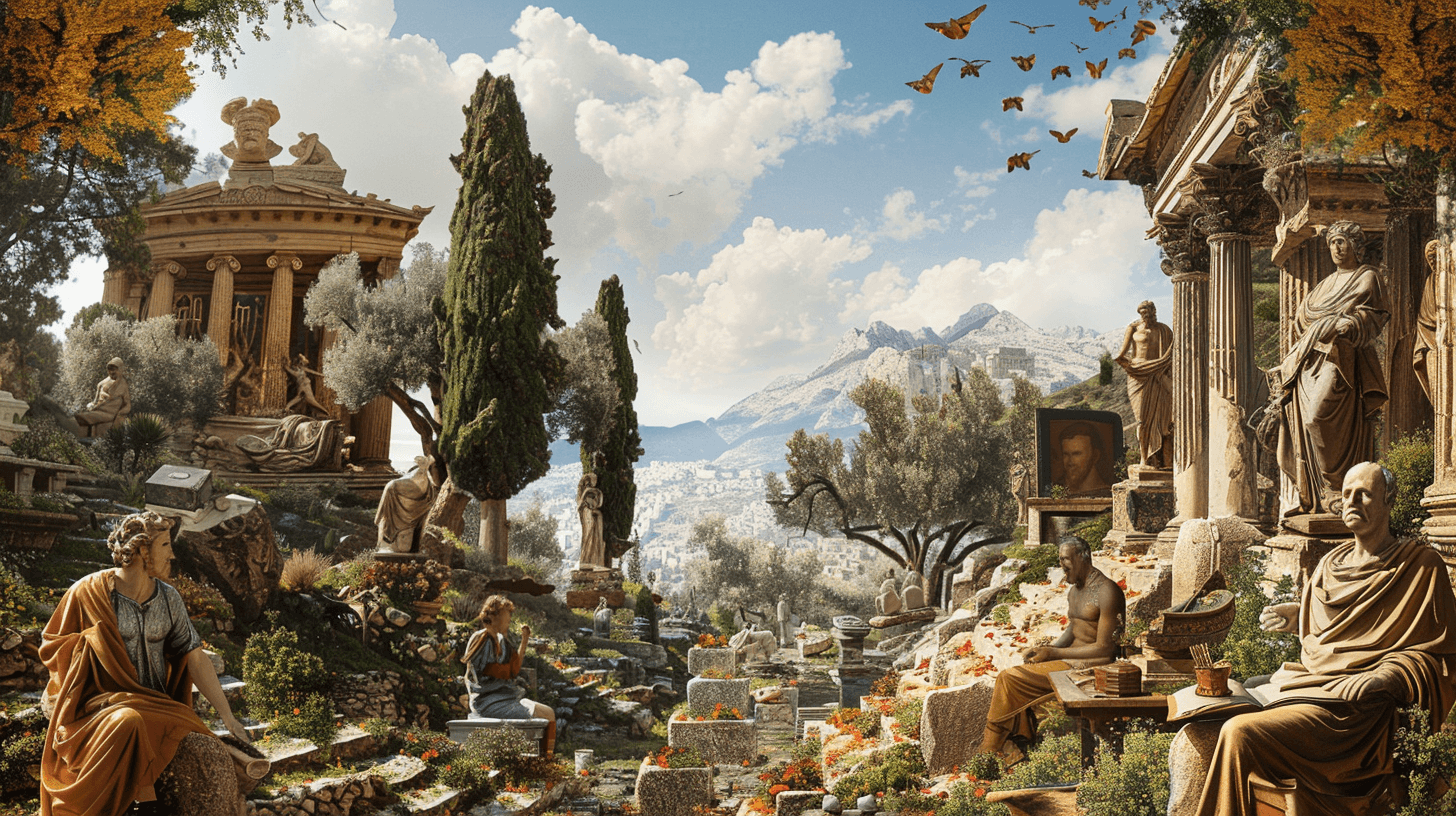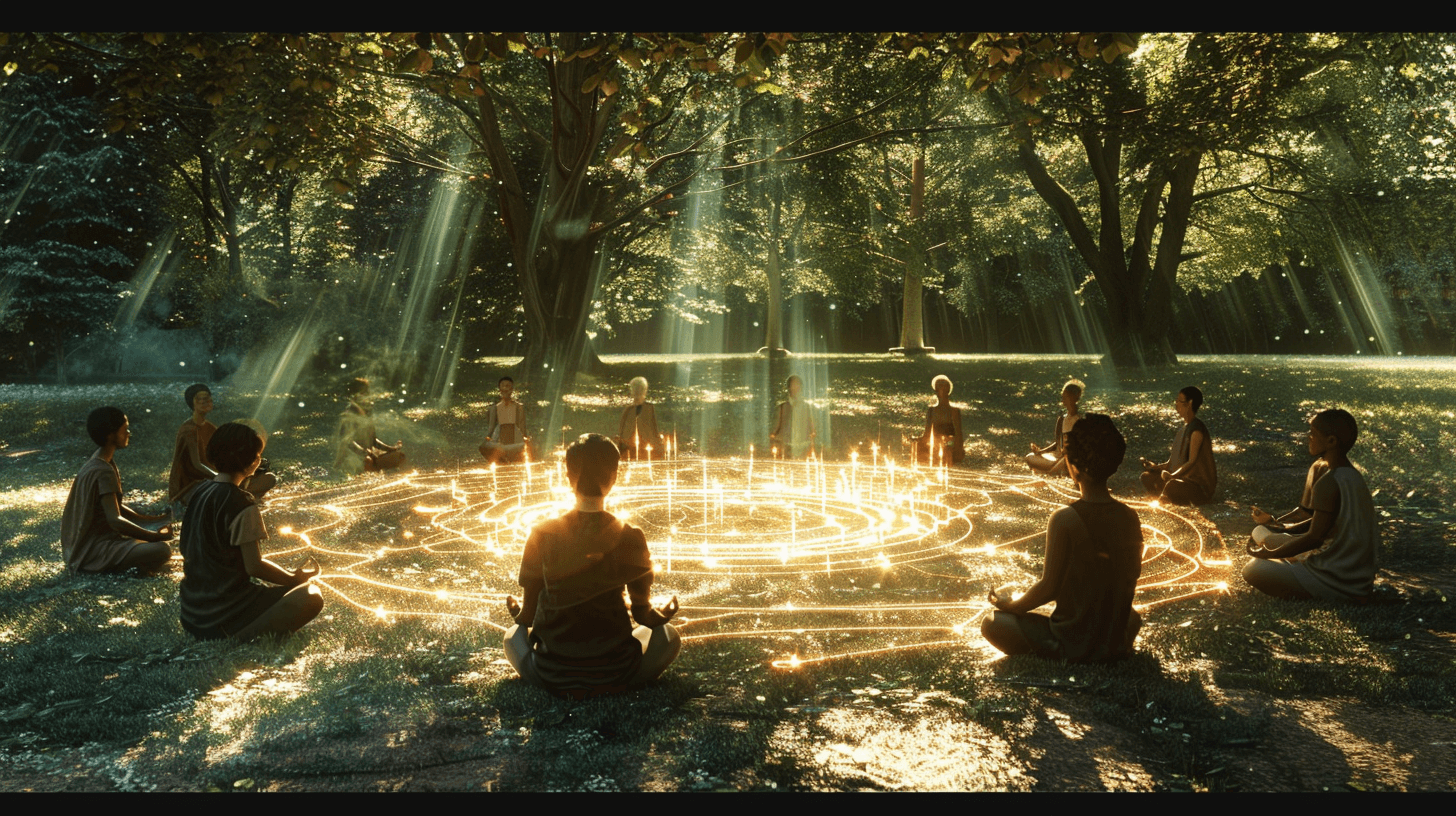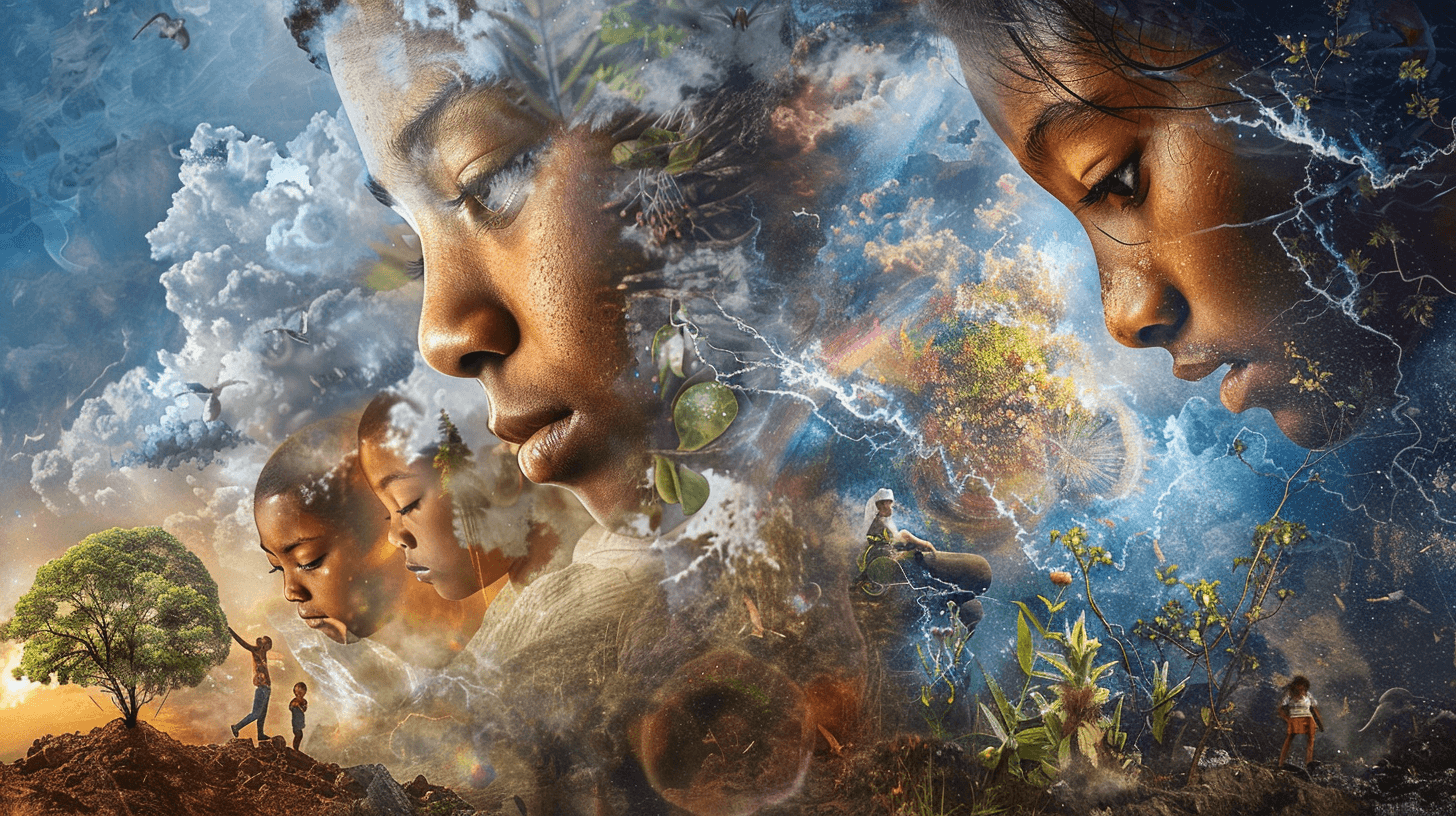Introduction: The Vision of a Golden Age for Humanity

Throughout history, the idea of a “Golden Age” has captured the imagination of philosophers, spiritual leaders, and futurists alike. This concept—of a time when humanity lives in harmony, abundance, and peace—transcends cultural boundaries and resonates across traditions. The notion of a Golden Age is more than a utopian dream; it’s a reflection of our collective yearning for a higher state of existence where human potential is fully realized.
Today, as we navigate an era marked by unprecedented technological advances, societal challenges, and environmental crises, the possibility of a new Golden Age feels both within reach and yet elusive. However, the path toward such a transformative era is not paved by external changes alone. It demands a shift in consciousness—both personal and collective. This article explores how the human potential for a Golden Age can be unlocked through the wisdom found in books, offering profound insights and practical guidance for navigating this journey.
By examining humanity’s capacity for enlightenment through the lenses of history, philosophy, spirituality, and modern science, this article provides a comprehensive roadmap for achieving a Golden Age. It also highlights the role that books—timeless vessels of knowledge—play in inspiring the necessary shifts in perspective and action.
Understanding the Golden Age – Historical, Philosophical, and Spiritual Perspectives

At its core, the idea of a Golden Age is rooted in humanity’s desire for progress and harmony. But what does it truly mean? Historically, the term refers to periods of peace, prosperity, and cultural flourishing, often romanticized as lost or distant ideals. These eras were marked by advancements in arts, philosophy, and social cohesion, seen in civilizations like ancient Greece, the Roman Empire, or the Renaissance.
However, the concept of a Golden Age extends beyond historical periods. It also holds deep spiritual significance, representing the evolution of human consciousness. Various traditions describe a Golden Age as a time when humanity reconnects with its higher self and lives in alignment with the natural and cosmic order.
Philosophical Interpretations
Philosophers such as Plato envisioned the Golden Age as an era of wisdom and reason, where societies governed by philosopher-kings would embody the highest ideals of justice and morality. This vision reflects the belief that a society’s progress is inextricably linked to the ethical and intellectual growth of its citizens.
In the Age of Enlightenment, thinkers like Immanuel Kant emphasized human potential for self-determination and intellectual freedom, marking an era where reason, science, and individual rights took center stage. For Kant, enlightenment was a process of emancipation from ignorance—an idea that parallels our modern quest for a collective awakening.
Spiritual Perspectives
Spiritual traditions also offer visions of the Golden Age. In Hinduism, the concept of Satya Yuga (the Age of Truth) describes a time when human beings live in perfect harmony with the universe, embodying righteousness and truth. Similarly, in Buddhism, the idea of Nirvana represents liberation from suffering and the cycle of rebirth, an internal Golden Age where one attains peace through the dissolution of the ego.
These spiritual perspectives highlight a key truth: the Golden Age is not solely about external conditions but about an internal transformation—both personal and collective. The external world, according to these teachings, is a reflection of the inner state of humanity. Therefore, achieving a Golden Age requires individuals to embark on their own spiritual journeys, contributing to the collective elevation of consciousness.
Modern Interpretations of Consciousness and Evolution
In the modern era, thinkers like Teilhard de Chardin and Ken Wilber have explored the evolution of human consciousness as central to humanity’s potential for a Golden Age. Teilhard de Chardin described the “Omega Point” as the culmination of human evolution, where consciousness reaches a state of unity with the divine. Similarly, Ken Wilber’s Integral Theory suggests that human beings are on a trajectory toward higher levels of consciousness, with each stage of evolution bringing us closer to a global awakening.
These perspectives remind us that the Golden Age is not a static end point but a dynamic process of continuous growth and evolution—both individually and collectively. By expanding our consciousness, we pave the way for humanity’s transition into this new era.
Top Books to Inspire Humanity’s Potential for a Golden Age

Books have long been vehicles for exploring human potential, providing readers with both timeless wisdom and new paradigms for thought. To understand humanity’s potential for a Golden Age, one must engage with books that challenge conventional ideas, inspire transformative action, and offer insights into the nature of consciousness and societal progress.
The Bhagavad Gita
Overview: A central text of Hindu philosophy, the Bhagavad Gita explores the concepts of dharma (duty), selflessness, and the journey toward spiritual enlightenment.
Key Insight: The Gita teaches that true progress begins with the mastery of the self, which in turn leads to the betterment of society. It encourages readers to find harmony within, making it a foundational text for understanding the path to a collective Golden Age.
A New Earth by Eckhart Tolle
Overview: Tolle’s book focuses on the transformation of consciousness as the key to humanity’s evolution.
Key Insight: Tolle argues that the ego-driven mindset is responsible for much of the suffering in the world today. He posits that collective enlightenment begins with the dissolution of the ego, leading to a “new earth” where humanity operates from a place of peace, compassion, and unity.
The More Beautiful World Our Hearts Know is Possible by Charles Eisenstein
Overview: Eisenstein challenges the dominant narratives of separation, competition, and scarcity, offering a vision of a world where humanity’s interconnectedness becomes the foundation for a more beautiful reality.
Key Insight: Eisenstein’s book is a powerful reminder that the Golden Age begins with a shift in worldview. By embracing a narrative of interdependence and abundance, humanity can transcend the limitations of the current societal model and create a world rooted in compassion and unity.
Sapiens by Yuval Noah Harari
Overview: Harari’s sweeping history of humanity explores how we arrived at our current state and hints at the possibilities for our future.
Key Insight: While not explicitly about a Golden Age, Sapiens offers a deep analysis of the pivotal moments in human history that shaped our collective consciousness. Understanding where we came from provides crucial insights into where we can go next.
Conscious Capitalism by John Mackey and Raj Sisodia
Overview: This book advocates for a new approach to business, one that prioritizes purpose and ethical leadership alongside profit.
Key Insight: The book argues that business can be a force for good, driving the global shift toward a more ethical and sustainable future. It shows how economic systems can evolve to support a Golden Age by aligning profit with purpose.
The Upanishads
Overview: These ancient Indian texts delve into the nature of reality, the self, and the universe, offering profound insights into human consciousness.
Key Insight: The Upanishads provide foundational teachings on the interconnectedness of all life and the path to self-realization, making them essential reading for anyone seeking to understand the spiritual dimensions of a Golden Age.
These books offer diverse perspectives on the possibility of a Golden Age, bridging ancient wisdom with contemporary thought and providing actionable insights for readers seeking to contribute to humanity’s transformation.
The Interconnectedness of Personal and Collective Transformation

The journey toward a Golden Age is not just an external one; it is deeply intertwined with personal growth and spiritual awakening. At the heart of this transformation is the realization that personal enlightenment contributes to collective evolution.
The Ripple Effect of Personal Growth
As individuals awaken to their potential, they become catalysts for change. This is evident in the way movements for peace, environmental sustainability, and social justice have emerged from the efforts of individuals who embody higher values. Personal growth radiates outward, influencing others and creating a ripple effect that can lead to widespread societal transformation.
Books that Bridge the Gap Between Personal and Collective Awakening
Books like The Power of Now by Eckhart Tolle and The Hero’s Journey by Joseph Campbell highlight how personal growth and self-discovery are integral to the evolution of society. When individuals confront their inner challenges and transcend the ego, they contribute to the collective awakening necessary for humanity to enter a Golden Age.
Examples of Real-World Impact
Throughout history, individuals inspired by the principles of spiritual and ethical transformation have sparked global movements. Figures like Mahatma Gandhi, who was inspired by the Bhagavad Gita, and Martin Luther King Jr., who drew upon Christian principles of love and justice, exemplify how personal enlightenment can lead to collective progress.
By studying the lives of these figures through books and biographical accounts, we see that personal growth is not an isolated experience but a catalyst for global change.
Addressing Global Challenges Through Spiritual Wisdom

Humanity’s path to a Golden Age is fraught with challenges, including environmental crises, social inequality, and political conflict. However, spiritual wisdom provides the framework for addressing these issues from a place of higher consciousness.
Spiritual Solutions to Global Issues
Spiritual teachings emphasize the interconnectedness of all life, suggesting that global problems cannot be solved without recognizing this unity. For example, Buddhist teachings on interdependence suggest that solving issues like climate change requires a shift from exploitative behavior to one of stewardship and reverence for the earth.
Books like The Ethical Investor by Ross Knowles and The Soul of Money by Lynne Twist offer practical strategies for addressing these challenges, advocating for ethical finance, conscious consumption, and sustainable living as key pathways to a Golden Age.
Books as Guides for Ethical Action
Books such as The Tao of Leadership by John Heider offer profound insights into how leadership rooted in spiritual wisdom can foster ethical action. Whether in business, politics, or community building, these works highlight the need for leaders to embody values like humility, compassion, and service.
Opportunities for Growth – How Individuals Can Contribute to Humanity’s Golden Age

The Golden Age is not an abstract idea; it is a tangible possibility that begins with individual actions. This section explores how individuals can take meaningful steps toward contributing to this global transformation.
Exploring Human Potential
Books like The Untethered Soul by Michael A. Singer show that unlocking human potential is not about external achievement but about inner transformation. By freeing ourselves from limiting beliefs and egoic patterns, we open the door to higher levels of consciousness that ripple out into the collective.
Collective Action and Building Communities
Individuals can also contribute by fostering communities focused on conscious living and global transformation. Books like Conscious Evolution by Barbara Marx Hubbard offer blueprints for creating these communities, whether through local activism, environmental stewardship, or social entrepreneurship.
Overcoming Obstacles on the Path to a Golden Age

The journey to a Golden Age is not without challenges. This section explores the obstacles humanity faces and how individuals can overcome them.
Dealing with Resistance and Fear
Change is often met with resistance, both from within and from external forces. Books like Radical Acceptance by Tara Brach and The Four Agreements by Don Miguel Ruiz offer tools for overcoming fear, doubt, and societal conditioning that hold us back from realizing our potential.
Navigating Modern Life
In a world filled with distractions, many seekers struggle to balance spiritual practice with daily responsibilities. Books like The Miracle of Mindfulness by Thich Nhat Hanh provide practical guidance for maintaining awareness and presence in every moment, allowing individuals to stay grounded on their path.
The journey to a Golden Age is not without challenges. This section explores the obstacles humanity faces and how individuals can overcome them.
Dealing with Resistance and Fear
Change is often met with resistance, both from within and from external forces. Books like Radical Acceptance by Tara Brach and The Four Agreements by Don Miguel Ruiz offer tools for overcoming fear, doubt, and societal conditioning that hold us back from realizing our potential.
Navigating Modern Life
In a world filled with distractions, many seekers struggle to balance spiritual practice with daily responsibilities. Books like The Miracle of Mindfulness by Thich Nhat Hanh provide practical guidance for maintaining awareness and presence in every moment, allowing individuals to stay grounded on their path.
Conclusion: A Golden Age is Possible – How Books Can Guide Us There

In closing, humanity’s potential for a Golden Age is not a distant dream but a tangible reality that begins with individual transformation and collective action. The books discussed in this article provide the wisdom, tools, and inspiration necessary to navigate this path, offering timeless guidance for those seeking to contribute to a better world.
As we move forward, it is important to remember that the seeds of a Golden Age are planted within each of us. By reading, reflecting, and taking conscious action, we can unlock our potential and help bring about the collective awakening that will shape humanity’s future. Through the power of books and the transformative ideas they contain, we are equipped to create a world that reflects the highest ideals of peace, prosperity, and enlightenment.








